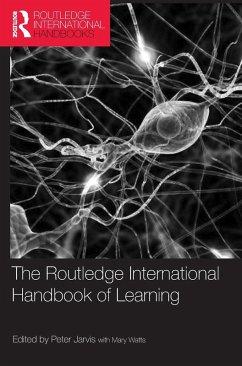
The Routledge International Handbook of Engineering Ethics Education
Versandkostenfrei!
Versandfertig in 1-2 Wochen
264,99 €
inkl. MwSt.

PAYBACK Punkte
132 °P sammeln!
Responding to the need for a timely and authoritative volume dedicated to this burgeoning and expansive area of research, this handbook will provide readers with a map of themes, topics, and arguments in the field of engineering ethics education (EEE).














